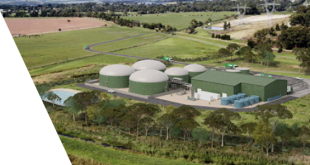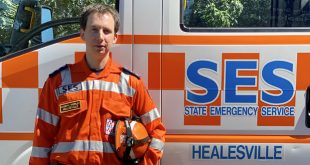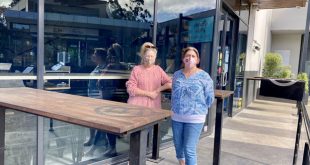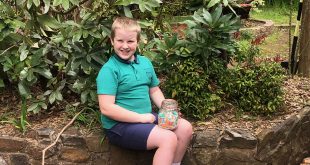How long have you lived in the Yarra Valley for Fiona?
I have lived in the Valley for 25 years now. I have lived in many different places in the Yarra Valley.
When did you join the CFA Fiona?
I became a member of Launching Place CFA back in 2003. In 2007 our brigade along with Woori Yallock Brigade agreed to be amalgamated into one brigade which was named Hillcrest Fire Brigade. I have been a member at Hillcrest Fire Brigade for 13 years now.
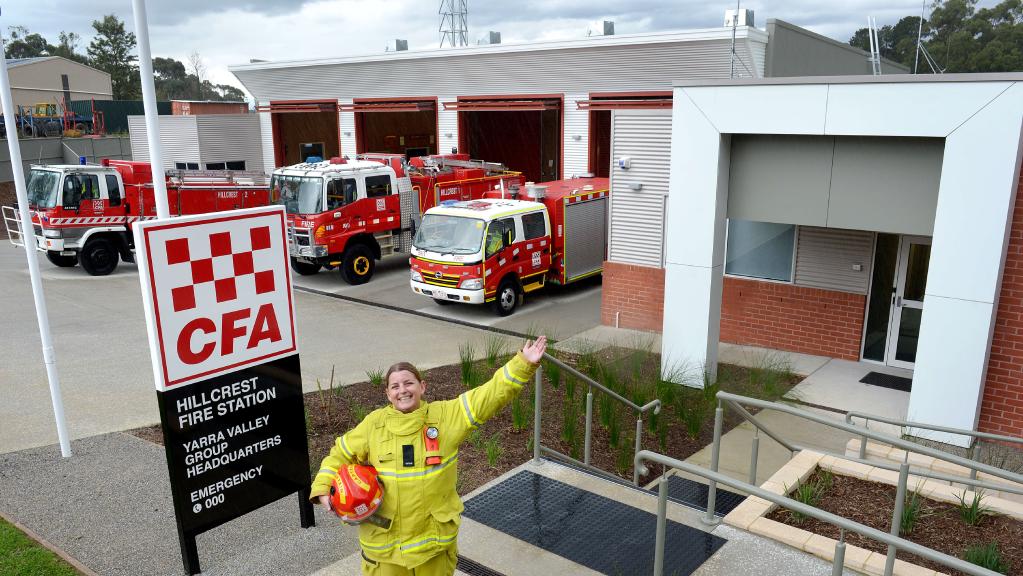
Why did you decide to join the CFA?
I decided to join the CFA because I was looking to gain some new skills, meet new people in the local community and most importantly I wanted to help the community. I also really wanted to drive a big red fire truck.
What sort of training did you do to be a CFA member?
The training is a little bit different now to when I did my CFA training. Back when I trained you had to do 7 compulsory modules that were all based around bushfire and safety. The training was essentially about giving us the knowledge and the skills to do our job in both practical and in theory. A big part of the training was on safety to ensure that we are safe when we go out to an incident.
The training I did came out of the Linton fires where we lost 5 fire fighters during a fire. Those recommendations still stay with the organisation to this day. Even the recruits that are undergoing their training now will be doing exactly the same training that I did but it’s just delivered in a completely different way these days.
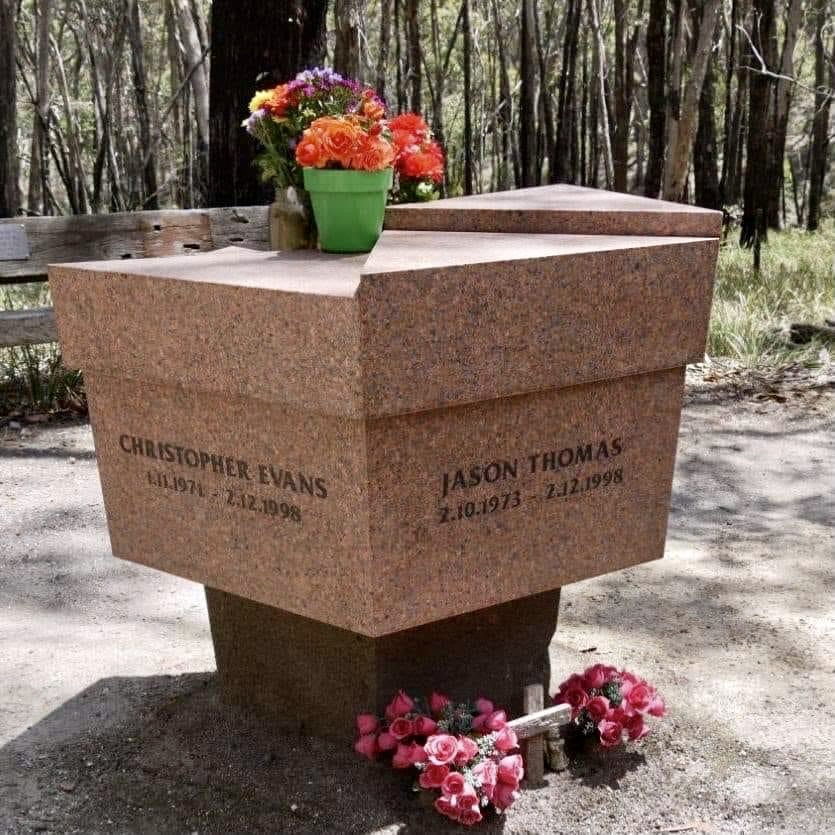
These days some of the theory sessions are done online, but you can’t teach practical skills online, so the recruits are still down here working with us and their mentors in the brigade to ensure they have the practical skills they need to undertake their job.
Nowadays with the new recruitment package which is shorter and delivered differently, new recruits can usually be ready in about 4 months or so. The recruits also have very strict mentoring arrangements as well. There is then a probationary period in most brigades which is usually 6 months. It is a big commitment but the flip side is that people learn about fires and the science behind it. It can be really empowering when you understand what you are dealing with, and you learn how to actually change what a fire does and be able it put it out.
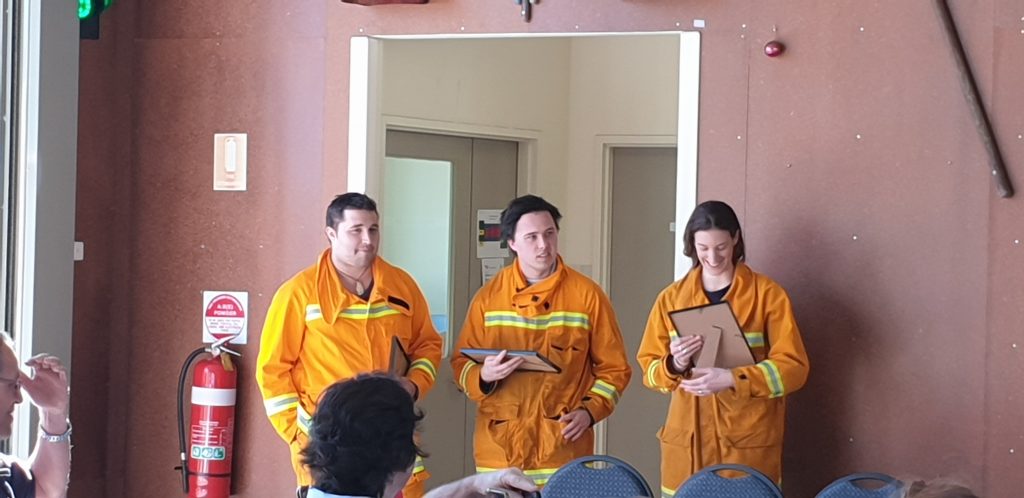
How do you work out who attends call outs?
We have mothers, fathers, husbands and wives, self employed, tradies, people that work for big and small business. We all make it work around all our other commitments. We have a pretty good understanding of who’s around and at what times during the day. We are obviously heading into our busy time of the year and lots of people go away on holidays, so we run availability lists, to see who’s around so we can still respond to our community if they need us.
What different types of emergency do you get called out to?
Most brigades will attend a huge array of call outs. They include bush fires, structural fires, electrical fires and car accidents. We also do large animal rescues (horses and cows), we have rescued bats out of toilets, cats struck in walls and electrical pole fires. There is a whole heap of different emergencies a brigade will do. Where there is a threat to life or property we will always attend.
How long have you been the captain for at Hillcrest Fire Station and what are your responsibilities as the captain?
I have been the captain of Hillcrest Fire brigade for 8 years now. As the captain I have a wide variety of things that I am responsible for. There are a few different aspects to being a CFA captain. There is managing the members in the brigade and their skill sets. There is also the administrative requirements which is not just about administrating the brigade, it is also about dealing with CFA headquarters and corporate requirements as well.
There is also financial obligations on the captain and the treasurer of the brigade which as you can imagine is no different to any other orginisation. We are accountable for the finances and how we manage the money within the brigade.
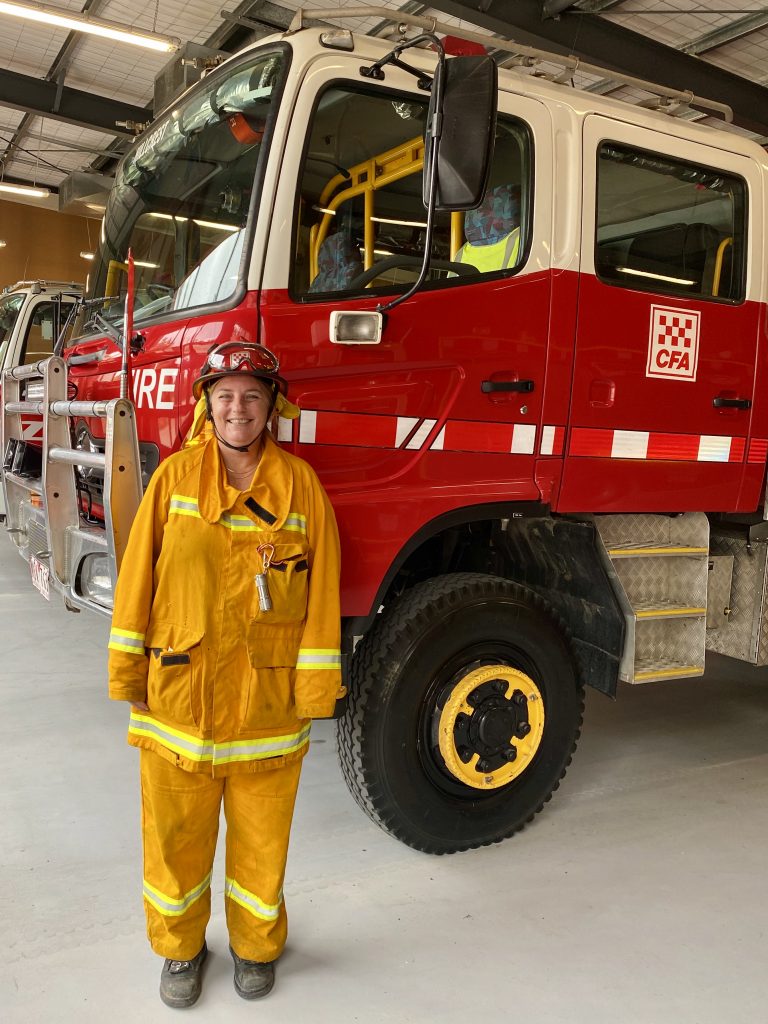
As the captain I can’t do everything, so I do delegate out to others in the brigade. I have 5 officers inside my brigade all which have portfolios that they are responsible for. We are a team and everyone plays a part.
Hillcrest Fire Brigade also has a satellite station at Don Valley which I am responsible for looking after as well. As you can imagine the requirements are quite substantial when I have two stations to run and maintain.
How many members do you have in the whole crew?
We have 49 members in our brigade. Our memberships are split into 2 groups. One is the operational members which is the fire fighting component and then the non operation members that provide a whole range of activities and support to the brigade.
Our non operational members help out with fundraising, social engagement in the community and ground maintenance. We had an older gentlemen called Perry come down one day and said he wanted to help us, but was too old to hop on a fire truck, so what could he do? So Perry now kindly mows our lawns and does all our garden maintenance. He also takes out all our bins for us and changes the fire rating sign on the highway and he played Santa this year for us too. Perry does a great job helping our brigade in so many different ways and we really appreciate his support.
Both our operational and non-operational members are essential to brigade life.
How much do you rely on donations from the community?
The community donations play a major part particularly with purchasing fire trucks for our station. We have one community owned truck which we raised funds for 15 odd years ago. When that truck turns 20 years of age we will have to replace it, so we have been raising funds incrementally over the years which we have saved to help us to replace that truck when it becomes too old.
The brigade contribution can be from over $100,000 to 250,000 depending on the vehicle that we are looking at replacing so community donations are really important when you have to raise that sort of money. The other vehicles are provided by the CFA but there are a whole heap of things that the donations from the community help us to purchase.
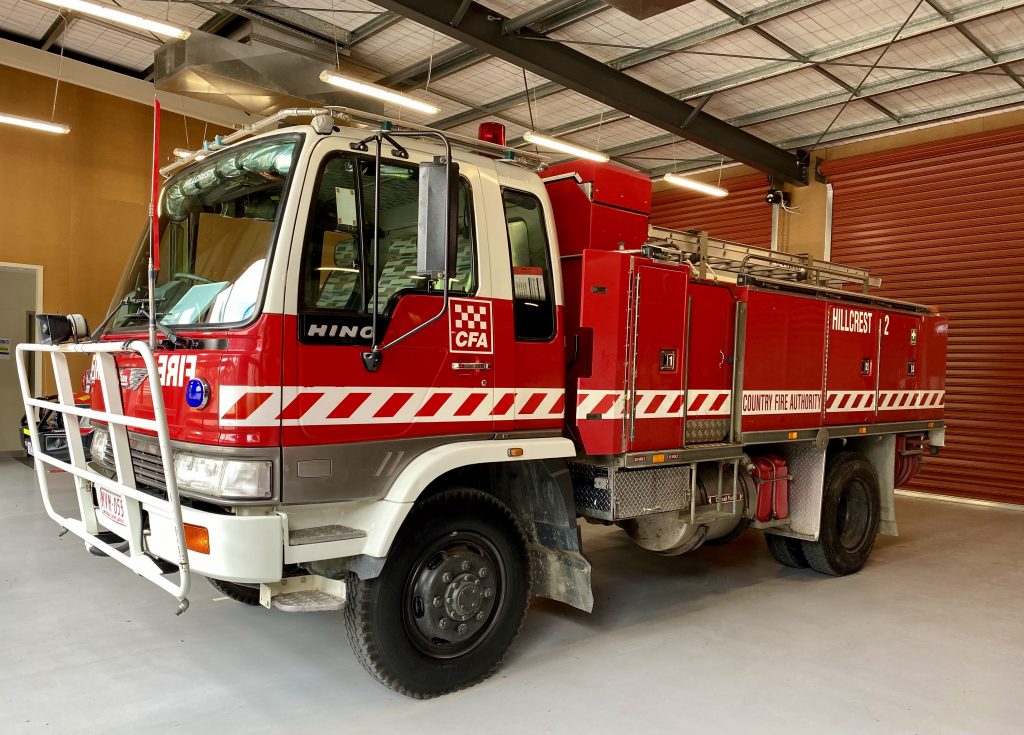
Recently we received two substantial donations from members of the community. Those donations have specifically gone towards purchasing torches for every single member of the brigade. Torches are particularly important to members when they are on the fire ground or at an incident at night. They all have their own torch which is fantastic.
There is some things that are not always provided by the organisation, so community donations are greatly appreciated as they allow as to buy those extra things that keep our members extra safe while out in the field.
How can people help your brigade?
The best way people can help is to come down and volunteer. We are just everyday people in the community that have just undertaken the training to give us the skills to do our job. Anyone can learn to be a CFA member as long as they are willing to do the training and commit to the organisation.
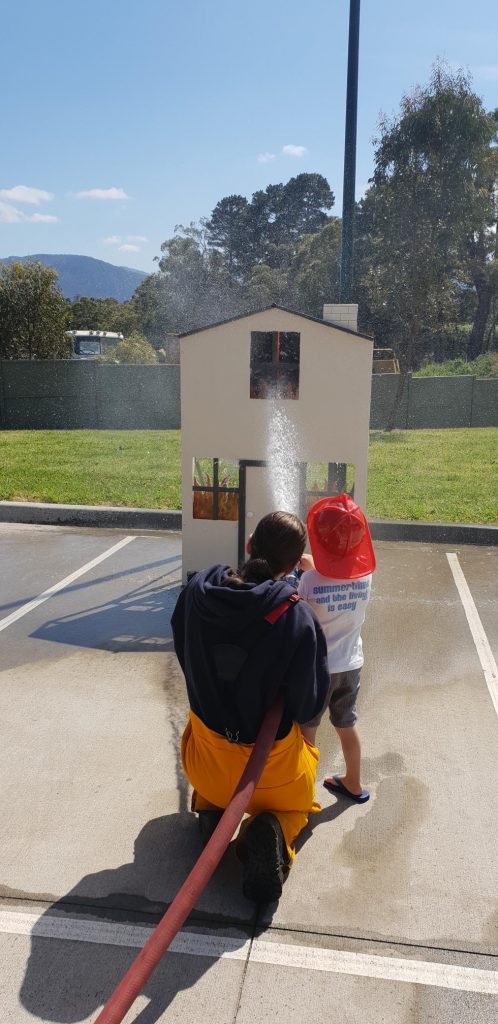
If volunteering is not an option for you then you can help by donating to your local CFA. We have found over the years that the community is extraordinarily generous particularly during large campaigns and events. When we had the Cambarville fire two seasons ago we had people dropping in here with slabs of water, fresh bread and food. The community around here is amazing. We can only do what we do because the community support us.
What is the most dangerous situation you have been in personally?
I think its a relative term based on your training but some of the worst bushfire behavior I have experienced would have to have been on Black Saturday.
I was also sent to NSW on their first code red day last year. We were part of the first strike teams into NSW. The CFA sent quite a few, so we were not the only ones. We were there to support the community that day and it was the worse possible day to be trying to fight a fire. That was a completely different experience because you are operating in a totally different state. It was challenging because we didn’t have the local knowledge that the local CFA had.
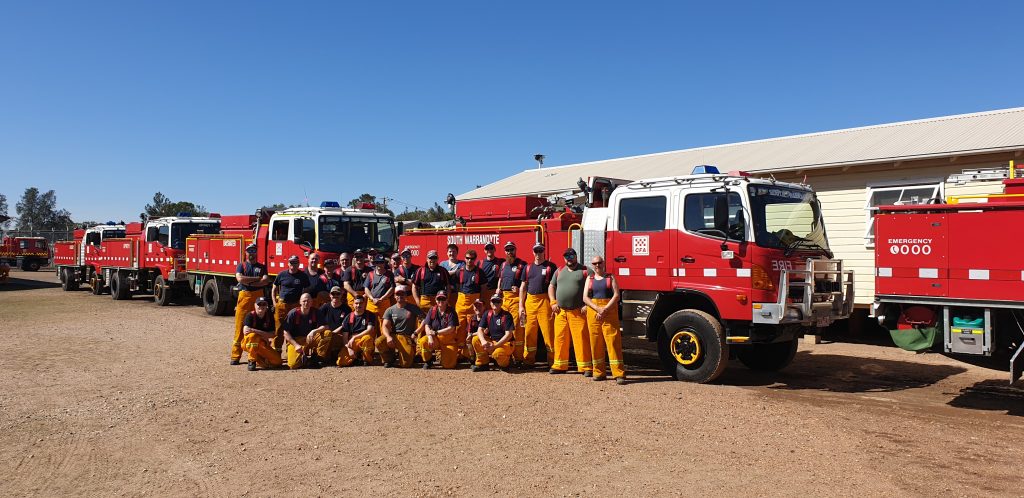
Fire is still fire in fairness to the fire component but we did not have the knowledge of back roads, radios, local water sources and we didn’t know what the community would do which made our job a little more challenging.
Our guys worked really hard to make sure that we could limit the impact with local crews at that fire. There was some good successes with what our crew did. Do I think that’s dangerous, I don’t know. Its part and parcel of the job. I am a strike team leader so you spend many years building up your skills, that doesn’t happen over night. You can’t put an old head on young shoulders in this game so it takes time to accumulate your skills to be able to lead a team of 28 people somewhere else.
How do you balance the safety of your members against saving people lives in the community?
It can be a very fine line at times but we will always push the envelope when it comes to protecting people’s lives in the community. We have got the trucks, we have got the water, we have got the gear and there is fire protective systems built into the firetruck which allows us go places and do things that members of the community cannot do. That doesn’t mean we are bullet proof and that we can’t get hurt or die, but it gives us more of an opportunity to try and save lives and property.
As you can imagine though there is always times when we actually can’t do things. We are trained to put out fire but I remember in 2009 (Black Saturday Fires) when we had to drive past houses that were on fire because we knew we couldn’t save that house, but we may be able to save the next one. That’s a really tough decision. Its tough for the person making that decision and its tough for the crew on the truck.
It’s even tougher when the residents are there, and you know that they are going to lose their home. Even if we stopped, we probably weren’t going to save the house, but as long as they are safe, that is the most important thing to us. So you drive onto the next home.
They’re the decisions you have to make and I will tell you they will live with you for the rest of your life. It’s the same when there are car accidents. We are a small rural community so the chances of us knowing people that are involved in an incident is quite high. Every time you see fatalities or we are involved in a fatalities it has a major impact on people and if you see enough of them the impact can be enormous.
You don’t have to see a Black Saturday or the Gippsland fires last year to be impacted. There are a whole heap of other impacts on members phycological and mental health and wellbeing. As a captain and a brigade we are responsible for trying to helping and support members as best as we possible can with their mental health.
We also have Critical Incident Stress Peers. They are specifically there to provide mental health and welfare support to our members. There are times when they are automatically called and there are other times when we call them because we think we need them. Everyone in the brigade knows how to get hold of them. It is a free service in the CFA and they are contactable 24/7. It is a great program.
What is the most rewarding part about being in the CFA?
There is lots of rewarding things about being in the CFA. Its very rewarding seeing new recruits who achieve a new skill, after they said they couldn’t do it, and you see them smile when they have done it or when you see them at their first turn out, that is very rewarding too. It is enormously rewarding to see recruits that I taught go on to be leaders in the brigade or captains. I feel very lucky that someone taught me and I am lucky enough to be in a position to share my knowledge and skills with others.
Other things like when you see a smile on a kids face when Santa has been around and has given them a bag of lollies. I get a bigger kick out of that than the community does I think. Sometimes the community will drop in cards and thank you notes for something we have done and that is really lovely.
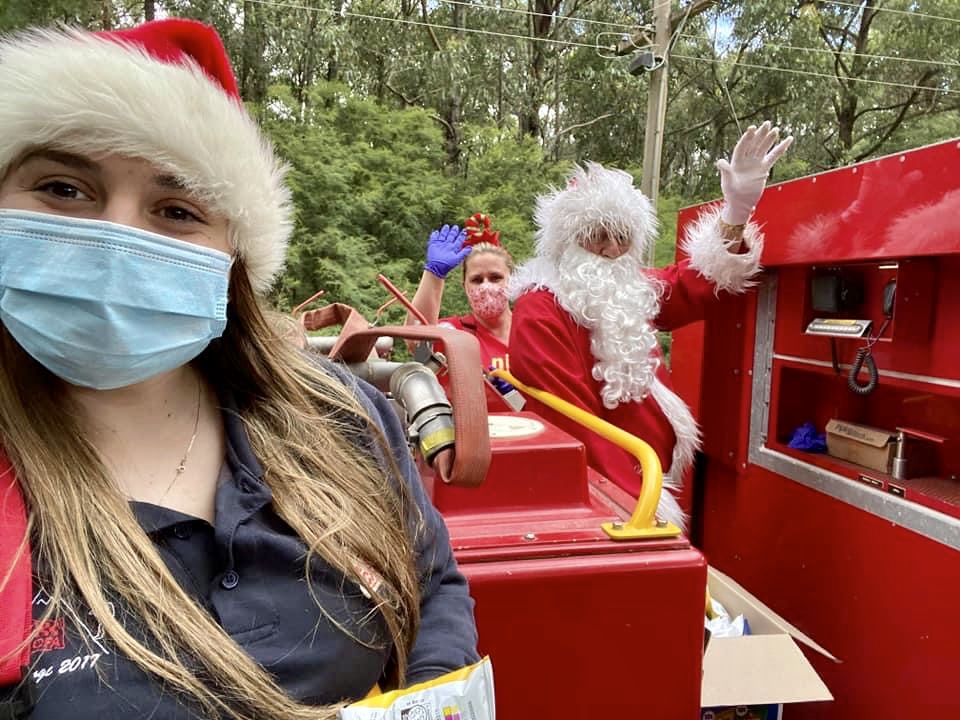
Sometimes we get to meet people who were involved in an accident that we attended. It is enormously rewarding when they want to thank you for helping them and that’s really nice, but we do what we do because we want to make a difference in the community. It’s great to see some people walk back through these doors or walk down our local street after a major accident. You know that your actions helped to save their life and that’s the buzz.
What is the hardest thing about being in the CFA?
We are getting a lot of 4 o’clock in the morning calls at the moment but the hardest thing to be honest is not being able to attend a call out because you are working or you have a commitment. Some members find that really tough.
For me its sometimes about that time management. Obviously being the captain, it is a bit of a different commitment. So trying to get that balance right in your life can be a challenge.
I think the other thing that is hard is when there hasn’t been a good outcome. You might drive past a particular spot and see flowers on the side of the road or you see the house that hasn’t been rebuilt because the owners were not insured.
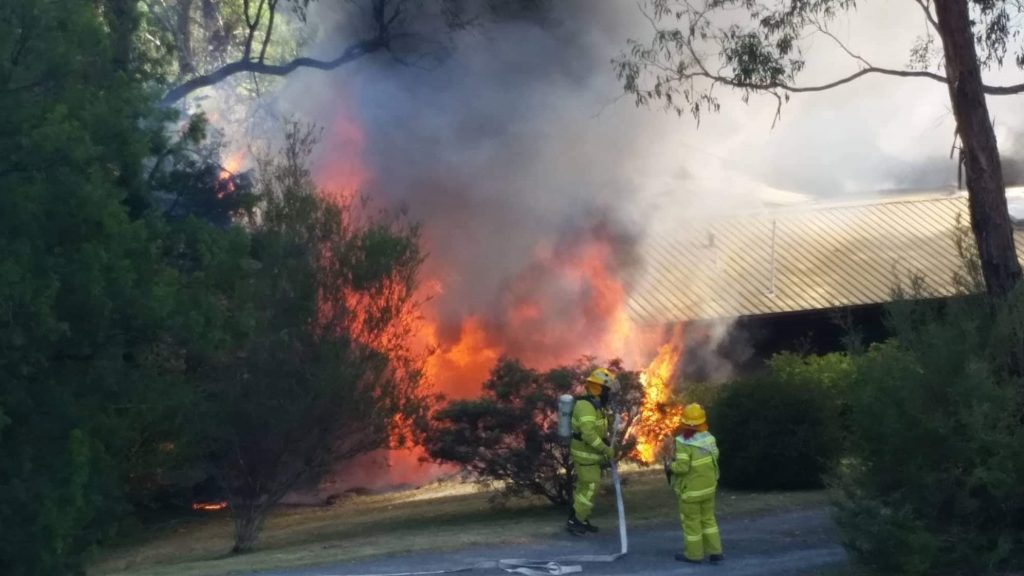
We sometimes see situations where you see a house burnt down because they didn’t have a working smoke alarm. In those situations I think could we have done more with our community engagement? But we can’t force people to do things.
Those are some of the hardest bits because we are not winning when there are some really simple things that members of the community could have done to help themselves.
A working smoke alarm may not have stopped the house from burning down, but it would of certainly given the occupants of the house more time to get out, and given us a better chance to be on scene earlier to try to save their house.
Even if the house does burn down if the owners are properly insured, then we walk away knowing that they can at least rebuild their home. So please make sure you have home insurance and make sure you have adequate cover to rebuild if fire does hit.
What is the best piece of advice you would give people to prepare for bush fire season?
Every year we say to people you need to prepare and every year people go it won’t happen to me. Do you know what, it will happen to you. Its not if, its when up here. People need to take the messaging seriously every year.
Just like you service your car you need to prepare your home for potential bush fire every year. Don’t think of it as something extra or special or an impost. You actually need to do things to help us, because the more prepared you are the better chance we have of saving your home. It makes our job much easier and safer if you prepare your home and yourselves.
In summer keep your lawns under 10cm or less around your home, clear your gutters and make sure you’re prepared. There is some really good information on the CFA website on how to prepare your home for fires and how to prepare a fire plan.
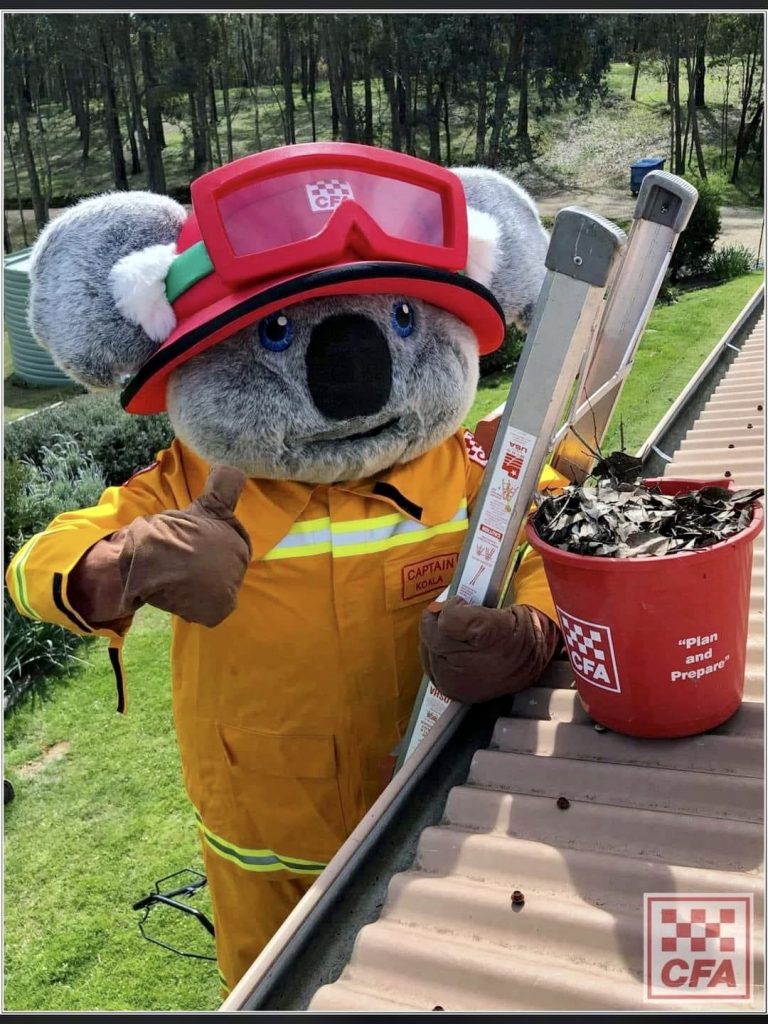
The residents of Gippsland and Malacoota said “this won’t happen to us” but it did. The one thing that is predictable is that we will have a bushfire season every summer and we will have a major fire every year somewhere in the state. Where the fire is will just depend on the weather, the conditions and the outcome of the fire will come down to the preparedness of the community.
I cannot emphasize enough the importance of listening to the warnings on your Emergency App. We have a lot of one way roads in this area and lots of roads with big trees on them, so if the trees come down in a wind event, which often comes with a really bad fire day you may not get out.
Have a plan A, B, C, D and E because if plan A doesn’t work and you can’t get out then you need to know what plan B is. People don’t generally make good decisions when they under pressure, when there is smoke and fire all around them and particularly if they have kids, so have a plan and be prepared.
 YARRA VALLEY NEWS
YARRA VALLEY NEWS

